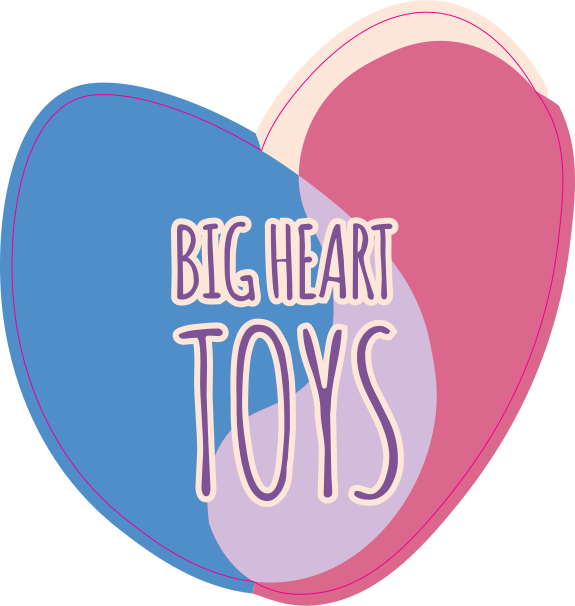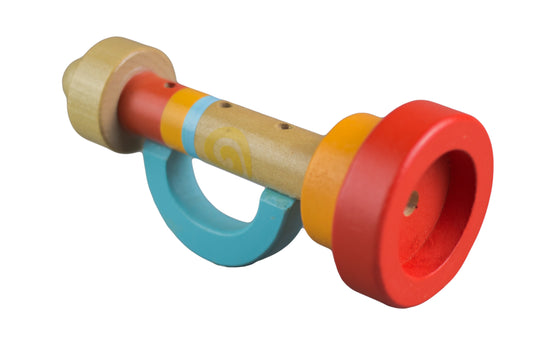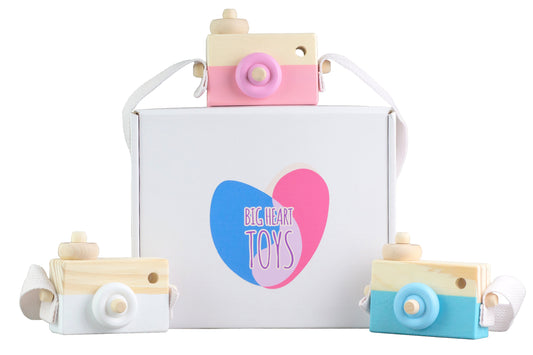Toys are an integral part of every child’s life. Children learn a significant amount of skills just by playing — especially when the play engages their imagination.
When you give your child toys that promote social and emotional growth, you’re helping them grow their social and emotional skills. These are often toys that prompt a child to get creative with how they play.
Playing pretend is always fun and exciting for your child. It also teaches them valuable life skills, including communication, problem-solving, and more.
Social development is extremely important in the early years of a child’s life. This is how they learn to interact with adults and other children. Giving your child toys that build their social and emotional intelligence teaches them lessons that they will use for the rest of their lives.
In today’s article, we’ll talk about how to boost your child’s social and emotional development with engaging toys.
How Do Toys and Play Engage Social-Emotional Development?
When you play with your child, you have countless opportunities to teach them about the world while still having fun.
For instance, you could pretend to be sad because you hurt your finger, then see how your child will react. Most likely, they will feel empathy for you and want to help you. Through this pretend scenario, your child will learn the value of compassion and helping out in a tough situation.
That’s just one example of play that engages your child’s imagination in a constructive way. However, introducing toys into the mix can make imaginative play even more beneficial for your child.
Let's take a look at some more toys that will help your child build their social and emotional skills.
1. Dolls and Stuffed Animals
Giving your child a doll or stuffed animal will help them learn about empathy and love. Kids love to cuddle with their favorite stuffed animals, and many even sleep with one tucked in next to them.
Pretending that a doll or stuffed animal is alive and taking care of it teaches your child valuable lessons. Through this type of play, they will learn how to interact with babies and pets, all while gaining self-confidence.
Playing with stuffed animals or dolls also encourages social development — there’s often pretend conversation involved in the play. This type of play also builds empathy by putting your child in the role of the caregiver to their stuffed animals or dolls.
Taking care of a favorite toy gives your child a sense of accountability. Having something to be responsible for will allow your child to understand what it's like to be you. By playing with your child and their favorite stuffed animals or dolls, you can teach them what it looks like to care for a real-life family member or pet. That’s one of the most valuable lessons they’ll ever learn!
How Toys Function in Imaginative Play
Giving your child different toys that promote imaginary play is tons of fun, but it’s also a learning opportunity. For example, children might not really be ready to understand metaphors like “Put yourself in their shoes” but can learn empathy through slightly more creative (and fantastical ways).
Imaginative play forms the basis of empathy. For example, you and your child can pretend to be builders, building a rocket ship to the moon. With visual aids like a play tool set, you can act out what it would be like to go on such a grand adventure.
This learning happens quietly. In fact, it may sometimes be imperceptible to the eye. But when “putting themselves in the shoes of another,” through imaginative play, your growing kiddos learn empathy, step by metaphorical step.
These toys give kids problem-solving skills and teach them about love and empathy. They also provide endless opportunities for imaginative play, either solo or with friends and siblings.
2. Books
Books are terrific for social development.
Reading teaches your child about different scenarios and how to react to changes in their lives. Stories (both real and fictional) come in handy when you need assistance in teaching manners, potty training, and much more.
In addition, many children’s books have meaningful stories that teach your kids the value of friendship, trying your best, telling the truth, and dreaming big. These are the types of books that do the most to build your child’s social-emotional skills.
Try reading them aloud to your kids on a regular basis. Not only does this inspire a love of literature and teach moral lessons, reading aloud forms an incredible bond between caregiver and child.
3. Rideable Toys
Giving your child rideable toys (like a bike or scooter) could encourage them to connect with other children. After all, it’s easy to find other kids in the neighborhood who want to ride along with them. These types of toys also help develop motor skills and decision-making abilities. Of course, riding a bike, scooter, or big wheel is just a lot of fun, too!
Riding toys are extremely beneficial for a child's development, both physically and mentally. In addition to the benefits listed above, they also help kids develop a sense of ownership and responsibility. You can teach your kids to steward and maintain their bikes or scooter, a valuable lesson that will serve them in adulthood.
Toys geared toward standing (for babies) and mobility (like tricycles for preschoolers) help build gross motor skills — a huge task.
4. Building Toys
Building toys helps to engage kids’ imaginations in unique ways, giving them opportunities to create their own structures, vehicles, and more. Giving your child building toys also helps with the development of motor skills and problem-solving skills.
One of the best ways to build your child’s social-emotional skills is with a Build-Your-Own-Toy Toolbox. This one-of-a-kind toy set helps children think outside the box and create toys that are completely their own.
Building toys can also help your child build relationships with other kids. Kids can collaborate and build their emotional and social confidence when working on a building project together. This type of play will give them a feeling of pride and a sense of accomplishment.
5. Puzzles and Games
Another excellent way to socialize with other children and adults is by playing games.
Finding some time to play board games or puzzles with your child builds their social skills and gives them a chance to control their emotions — after all, they won’t always win!
Playing games teaches kids about winning and losing and how it feels to be in both positions. You can teach them how to react in both of these situations, offering insight into the value of saying “good game.”
Some classic games that will get those brains working are checkers, math card games, and even simple options like Tic Tac Toe. These games are a blast to play, and they’re also full of what parents often call “teachable moments.”
Puzzles and mazes are also fantastic for developing problem-solving skills. Puzzles help children learn to plan ahead, deal with frustration in a healthy manner, and work on color and shape recognition. Start by introducing easier puzzles; if they are too challenging, your kids will feel discouraged.
6. Musical Instruments
The benefits of music for children are endless.
Music helps a child unlock their emotions, express themselves, and collaborate with others. Kids love singing and dancing to music and even playing musical instruments.
Playing a toy trumpet or set of play drums will help develop your child's hand-eye coordination and motor skills while they are having fun. By adding music into playtime, your child will begin developing a lifelong love of songs and instruments.
Kids will also enjoy listening to music with their peers and talking with each other about the kinds of music they like. As they get older, their favorite bands and musicians will become the soundtrack to their lives. Maybe they’ll even start writing their own songs!
The Dos and Don'ts During Playtime
Playing with social-emotional toys is a blast, and it teaches your kids some valuable lessons and life skills. It’s even better when you join in on the fun.
While it’s wonderful to play with your child, it’s essential to let them steer playtime in whatever direction they please. Giving them some autonomy while playing helps them build a sense of confidence and self-efficacy.
You should also encourage your child to be silly and to play with other kids as well. Group play works wonders when it comes to social-emotional development. On the other hand, independent play is still a vital skill to foster.
Of course, it’s okay to let your kids play games on a phone or tablet on occasion, but we recommend limiting screen time. Real-life play often does more to develop a child’s social and emotional intelligence.
Finally, always encourage outdoor play. Let your child explore the world and engage all their senses. Being outside will give your child a chance to play with other children, all the while growing their understanding of the world. Outdoor play also reduces stress and improves concentration.
Why Is Social-Emotional Development Important?
Kids with strong social-emotional skills find school, work, and life to be easier to navigate.
Socially and emotionally intelligent kids will know how to react to different situations appropriately. However, social-emotional development is not something that happens overnight; it’s a learning process that lasts well into adulthood.
That’s why it is so important as a parent to be good role models and teach our children how to have healthy relationships with other people.
Social-emotional skills help us connect with others and manage our emotions. It is crucial for parents and caregivers to teach these skills through play from the beginning of a child's life until adulthood. The best way to teach these skills is through play, stories, and learning.
On a child’s journey of social-emotional development, both structured and unstructured play is incredibly beneficial. With these play styles, we teach our kids essential skills while also letting them figure some things out on their own.
Engaging in structured and unstructured play will help your child manage different life situations without always needing help when they are older.
Playtime Has a Powerful Purpose
Play is about learning how to deal with different emotions, how to socialize with other children, and how to problem-solve. The right toys can make all the difference in these areas, making playtime more fun and educational.
Your child will flourish when playing with social-emotional toys and adding imaginative play into their routine. Allowing your child to play with you and learn from you will help with their social development and strengthen your bond with them.
With help from the toys listed above, you can make playtime both fun and meaningful — and help your child grow into a compassionate, confident adult.
Sources:
What Are Social-Emotional Skills? | Pathways
Social and Emotional Development | U.S. Department of Health & Human Services
How Reading Aloud Can Help You Bond with Your Kids and Make Them Better Readers | KQED
Learning With Puzzles | Queensland Government
Why Playing Alone Is Important for Children | Verywell Family






